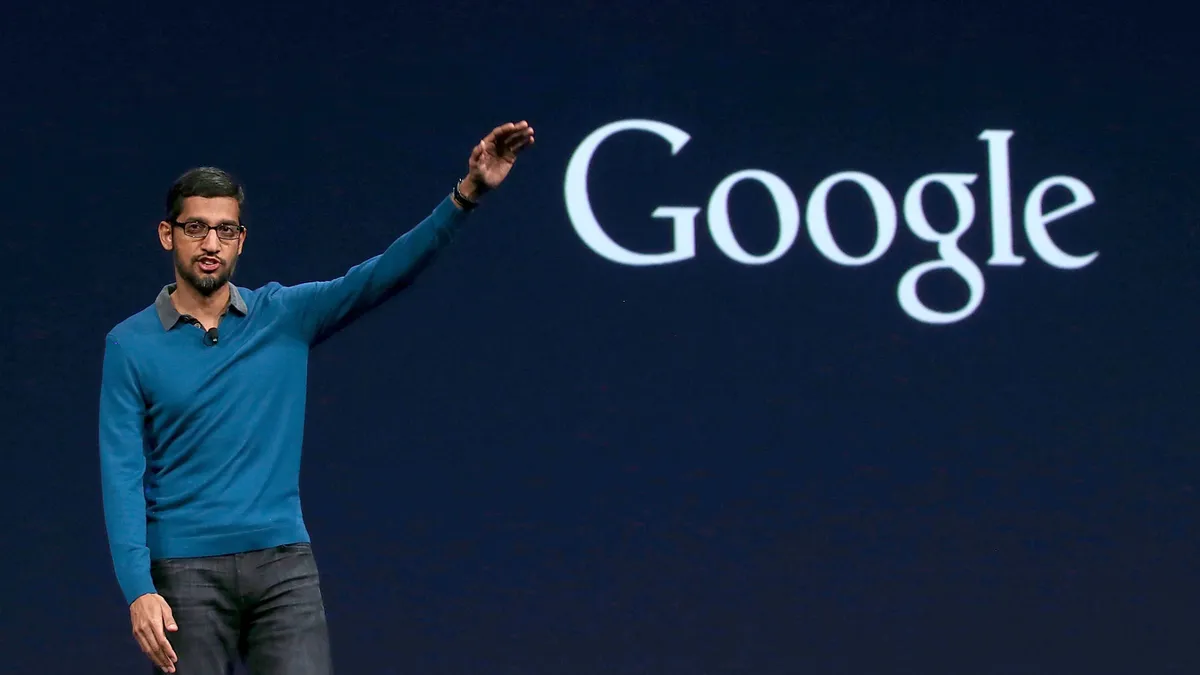Dive Brief:
- Google has offered to spin off its ad auctioning and serving business into a separate company under Alphabet in a bid to alleviate mounting regulatory pressure, The Wall Street Journal reported, citing sources familiar with the matter.
- The move, which would represent a major concession from the tech giant, comes as the Justice Department prepares an anticompetitive lawsuit targeted at Google’s ad-tech business that could be filed as early as this summer, according to the Journal.
- Separately, Google has proposed switching up how YouTube operates in reaction to an anticompetitive investigation in the European Union. The change would let other firms sell ads directly on the video-sharing platform, a process Google currently controls through its own advertising products.
Dive Insight:
A deluge of scrutiny seems to finally be putting some chinks in Google’s armor. The search behemoth has frequently landed in the crosshair of regulators but to date has mostly been slapped with fines that can be steep but easy to brush off with such deep pockets. Parent organization Alphabet generated a record $257 billion in revenue last year.
The Journal’s report indicates that Google is now willing to make more substantive changes as officials increase pressure and lawsuits pile up. Splitting its ad-tech group into its own entity might provide greater transparency and introduce a stronger sense of separation to a sprawling ecosystem where Google both auctions and places ads — a multi-pronged approach that has long frustrated independent competitors that feel edged out.
It’s unclear at the moment if the Justice Department will be satisfied with anything other than a sale of some of Google’s assets, according to the Journal, a more drastic outcome that would change the power balance in an industry where the firm has remained dominant. Google and Meta Platforms together command more than half of the total digital advertising market, per eMarketer estimates. That position is expected to wane in the years ahead amid an influx of competitors such as Amazon and TikTok, while any sort of break-up of Google would likely accelerate the trend considerably. That’s a path Google is obviously looking to avoid.
“As we’ve said before, we have no plans to sell or exit this business,” a spokesperson said in a statement to the Journal.
Ad tech is not the only area of Google’s business in the hot seat in the U.S. The Justice Department two years ago submitted a lawsuit against Google centered on anticompetitive practices around search, and that case is ongoing. Among a number of other complaints, a bipartisan coalition of senators in May introduced a bill that intends to force Google to break up its ads business.
Additionally, the Journal’s sources signaled that Google is open to tweaking how advertising on YouTube works to appease European regulators. The video-sharing platform has become a significant piece of Google’s growth strategy — it started to break out YouTube revenue in its earnings back in 2020 — and Google effectively owns direct ad sales on the service. Opening up the process to third parties could spread more money around the industry amid a hot market for digital video, but also introduce new complexities.















